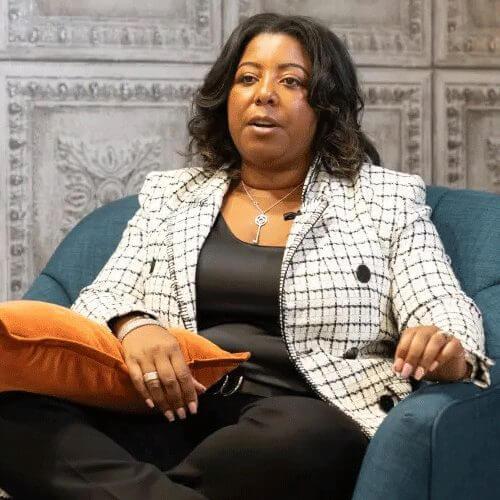How Pediatric Flu Vaccine Trials are Protecting Our Children
In today's world, where health concerns are paramount, safeguarding our children against infectious diseases is a top priority. One of the most crucial aspects of this effort is ensuring the efficacy and safety of vaccines. Pediatric flu vaccine clinical trials play a pivotal role in this mission, helping to protect our children from the potentially severe impacts of influenza. This article delves into how these trials are conducted, their significance, and the role of institutions like the Sun Research Institute and San Antonio Clinical Trials in advancing pediatric healthcare.
Understanding Pediatric Flu Vaccine Clinical Trials
What are Pediatric Flu Vaccine Clinical Trials?
Pediatric flu vaccine clinical trials are research studies designed to evaluate the safety, efficacy, and immunogenicity of influenza vaccines in children. These trials are essential in determining the appropriate vaccine formulations and dosages for different age groups, ensuring that the vaccines are both effective and safe for pediatric use.
Phases of Clinical Trials
Clinical trials for pediatric flu vaccines typically go through several phases:
- Phase I: This initial phase involves a small group of healthy volunteers (including adults before children) to assess the vaccine's safety and determine the appropriate dosage.
- Phase II: In this phase, the vaccine is administered to a larger group of children to further evaluate its safety and immunogenicity.
- Phase III: This phase involves a much larger population, often across multiple sites, to confirm the vaccine's efficacy and monitor for any adverse reactions.
- Phase IV: Post-marketing studies are conducted after the vaccine is approved for public use to gather additional information on its long-term effects and effectiveness.
Importance of Pediatric Flu Vaccine Trials
These trials are crucial for several reasons:
- Safety and Efficacy: Ensuring that vaccines are safe and effective for children is paramount. Clinical trials provide the necessary data to support this.
- Dosage Determination: Children are not just small adults; their immune systems react differently to vaccines. Trials help determine the optimal dosage for different age groups.
- Building Trust: Rigorous testing builds public trust in vaccines, which is essential for widespread vaccination and community immunity.
The Role of San Antonio Clinical Trials and Sun Research Institute
San Antonio Clinical Trials
San Antonio Clinical Trials is a leading research organization dedicated to advancing medical science through rigorous clinical research. They have been at the forefront of numerous pediatric flu vaccine clinical trials, contributing significantly to the development of safe and effective vaccines for children.
Sun Research Institute
The Sun Research Institute is another prominent medical research center that plays a vital role in pediatric flu vaccine trials. Known for its state-of-the-art facilities and experienced researchers, the institute conducts comprehensive studies to ensure that new vaccines meet the highest standards of safety and efficacy.
Collaborative Efforts
Both San Antonio Clinical Trials and Sun Research Institute collaborate with pharmaceutical companies, healthcare providers, and other research institutions to conduct large-scale pediatric flu vaccine trials. Their combined efforts help accelerate the development of vaccines that can protect children from the flu.
The Process of Conducting Pediatric Flu Vaccine Trials
Recruitment and Participation
Recruiting participants for pediatric flu vaccine clinical trials is a critical step. Researchers seek volunteers from various demographics to ensure diverse representation. Parents play a significant role in consenting for their children to participate, after being thoroughly informed about the trial's purpose, procedures, and potential risks.
Administration of the Vaccine
Once participants are enrolled, they receive the trial vaccine under close medical supervision. Researchers monitor the children for any immediate adverse reactions and provide guidelines for parents to observe and report any side effects at home.
Monitoring and Data Collection
Throughout the trial, researchers collect extensive data on the participants' immune responses, any side effects, and overall health outcomes. This data is crucial for assessing the vaccine's safety and efficacy.
Analysis and Reporting
After data collection, researchers analyze the results to determine the vaccine's effectiveness in preventing influenza and its safety profile. These findings are then submitted to regulatory authorities for review and approval.
The Impact of Pediatric Flu Vaccine Trials
Improved Vaccine Formulations
Pediatric flu vaccine clinical trials have led to the development of improved vaccine formulations that are specifically tailored for children. These vaccines are designed to elicit strong immune responses while minimizing the risk of adverse reactions.
Enhanced Public Health
By ensuring that flu vaccines are safe and effective for children, these trials contribute significantly to public health. Vaccinating children not only protects them from the flu but also helps prevent the spread of the virus within the community, reducing the overall incidence of influenza.
Building a Healthier Future
The knowledge gained from pediatric flu vaccine trials helps build a healthier future for our children. With effective vaccines, we can prevent the complications and severe outcomes associated with influenza, ensuring that children can lead healthy and active lives.
Challenges and Considerations in Pediatric Flu Vaccine Trials
Ethical Considerations
Conducting clinical trials in children involves stringent ethical considerations. Researchers must ensure that the trials are conducted with the highest standards of care and that the potential benefits outweigh the risks. Informed consent from parents or guardians is crucial, and the child's well-being is always the top priority.
Addressing Vaccine Hesitancy
Vaccine hesitancy remains a challenge, even with rigorous clinical trials demonstrating safety and efficacy. Education and transparent communication with parents are essential to address concerns and build trust in the vaccination process.
Overcoming Operational Challenges
Logistical challenges, such as recruiting diverse populations and maintaining high standards of data collection, are significant. Research centers like San Antonio Clinical Trials and Sun Research Institute invest in robust infrastructure and skilled personnel to overcome these hurdles.
The Future of Pediatric Flu Vaccine Research
Innovations in Vaccine Technology
Advancements in vaccine technology, such as mRNA vaccines, hold promise for the future of pediatric flu vaccines. Ongoing research aims to develop vaccines that provide broader and longer-lasting protection against multiple strains of the influenza virus.
Global Collaboration
Global collaboration is key to advancing pediatric flu vaccine research. By working together, research centers, pharmaceutical companies, and health organizations can share data, resources, and expertise to accelerate the development of effective vaccines.
Continued Vigilance
Despite the progress made, continued vigilance is necessary to address emerging flu strains and changing epidemiological patterns. Ongoing surveillance and research are essential to adapt vaccine formulations and ensure continued protection for our children.
Conclusion
Pediatric flu vaccine clinical trials are a cornerstone of public health efforts to protect children from influenza. Through the rigorous work conducted by institutions like San Antonio Clinical Trials and Sun Research Institute, we can ensure that our children receive safe and effective vaccines. These trials not only safeguard individual health but also contribute to the broader goal of community immunity. As we look to the future, continued research and innovation will be vital in maintaining and improving the health and well-being of our youngest generations.






Comments